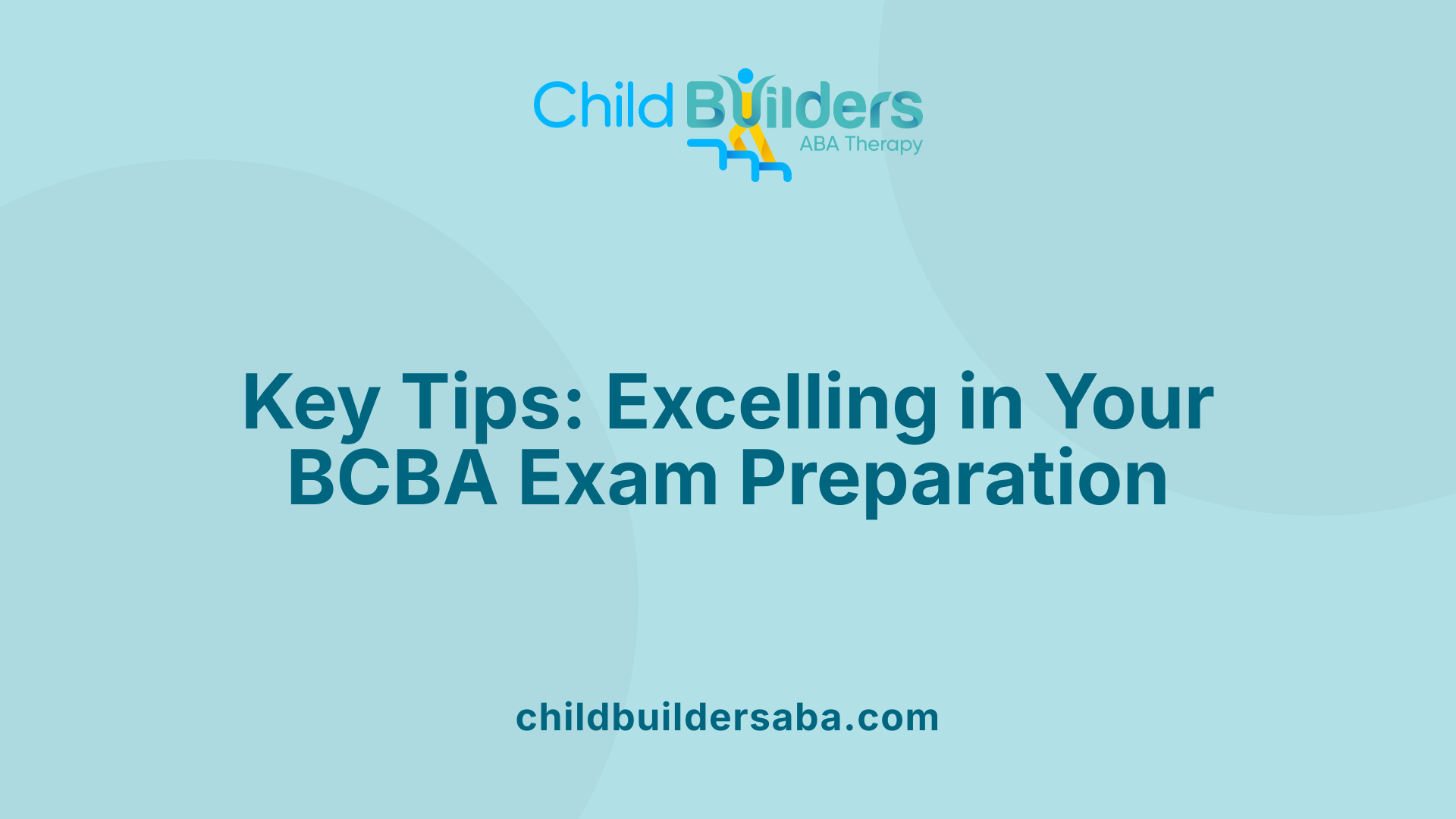How to Pass the BCBA Exam

Embarking on Your BCBA Certification Journey
Passing the Behavior Analysis Certification Board's (BACB) BCBA exam is a challenging yet achievable goal for aspiring behavior analysts. This comprehensive guide offers strategies, resources, and practical tips to help you prepare effectively, understand the exam structure, and increase your chances of passing on the first attempt. Whether you are just starting your study plan or seeking advanced techniques, this article consolidates expert advice to support your journey toward certification.
Understanding the Journey to Certification: Eligibility and Application

What are the eligibility requirements for becoming a BCBA?
Candidates interested in obtaining the Board Certified Behavior Analyst (BCBA) credential must meet specific prerequisites. Typically, this includes holding a master's degree or higher from an accredited institution. In addition to academic qualifications, applicants are required to complete between 1500 and 2000 hours of supervised fieldwork, which provides practical experience under the guidance of a qualified supervisor. These foundational steps ensure candidates are adequately prepared for the exam and future professional responsibilities.
How does the application process and approval work?
Once candidates verify they meet the eligibility criteria, they need to submit an application through the Behavior Analyst Certification Board (BACB). The process involves documenting educational credentials, supervised experience, and potentially other qualifications. After submission, the BACB reviews the application to confirm eligibility. This step may require providing detailed records and sometimes additional documentation. When approved, candidates receive authorization to schedule their exam.
What are the preparation timelines and planning tips?
Preparing effectively for the BCBA exam involves strategic planning over several months. It’s recommended to start early, ideally giving yourself at least 3 to 6 months to review all necessary content areas thoroughly. Develop a study schedule that includes reading relevant textbooks, attending review courses, engaging in active recall techniques like flashcards, and taking mock exams. Regular assessments help identify weak spots, allowing you to focus on those areas first. Remember, consistent study habits and a clear timeline enhance your readiness and confidence for exam day.
Tips for effective exam preparation
To maximize your chances of passing the BCBA exam on the first attempt, create a comprehensive study plan that includes various resources such as the BACB’s Task List, ethics code, and recommended materials like study manuals and online courses.
- Use practice exams to simulate real testing conditions.
- Focus on understanding concepts rather than rote memorization.
- Review challenging topics repeatedly.
- Join study groups for collaborative learning.
- Manage your exam day logistics early, including location and materials.
By approaching your preparation systematically, you can build the knowledge and confidence needed to succeed.
Final Steps and Continuous Growth in Behavior Analysis
Successfully passing the BCBA exam is a significant milestone that requires thorough preparation, strategic study, and understanding of the exam content and procedure. After passing, ensure your certification is official, stay compliant with state licensure, and develop a plan for ongoing professional development. Behaving ethically, engaging in continuing education, and participating in the professional community are vital for maintaining your credential and advancing in the field of behavior analysis. Remember, certification is not the end but a foundation for a lifelong journey of learning, application, and contribution toward improving lives through behavior analysis.
References
- EXAMINATION INFORMATION - Behavior Analyst Certification Board
- BCBA Exam Advice, Strategies, and Tips - StudyABA.com
- Best BCBA® Exam Prep Study Materials to Pass on the First Attempt
- Pass the Big ABA Exam - Trusted to beat the odds. Since 2012.
- What Happens After You Pass a BCBA Exam? - Purdue Global
- How Hard is it to Pass the BCBA® Exam?
- BCBA Exam Advice, Strategies, and Tips - StudyABA.com



























.jpg)









































































